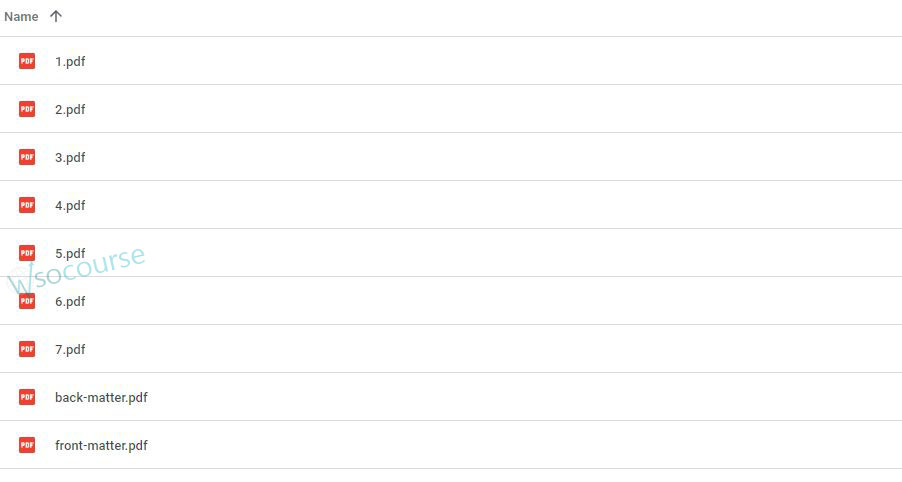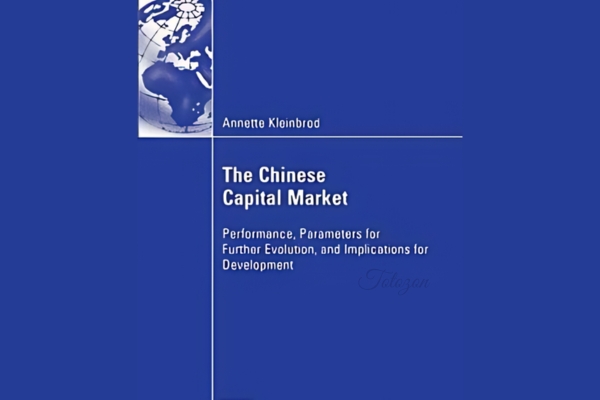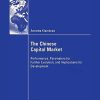-
×
 The Orderflow Masterclass with PrimeTrading
1 × $17.00
The Orderflow Masterclass with PrimeTrading
1 × $17.00 -
×
 The A14 Weekly Option Strategy Workshop with Amy Meissner
1 × $23.00
The A14 Weekly Option Strategy Workshop with Amy Meissner
1 × $23.00 -
×
 How To Read The Market Professionally with TradeSmart
1 × $27.00
How To Read The Market Professionally with TradeSmart
1 × $27.00 -
×
 The Trading Blueprint with Brad Goh - The Trading Geek
1 × $5.00
The Trading Blueprint with Brad Goh - The Trading Geek
1 × $5.00 -
×
 The Complete Guide to Multiple Time Frame Analysis & Reading Price Action with Aiman Almansoori
1 × $13.00
The Complete Guide to Multiple Time Frame Analysis & Reading Price Action with Aiman Almansoori
1 × $13.00 -
×
 TRADING NFX Course with Andrew NFX
1 × $5.00
TRADING NFX Course with Andrew NFX
1 × $5.00 -
×
 WondaFX Signature Strategy with WondaFX
1 × $5.00
WondaFX Signature Strategy with WondaFX
1 × $5.00 -
×
 ICT Prodigy Trading Course – $650K in Payouts with Alex Solignani
1 × $15.00
ICT Prodigy Trading Course – $650K in Payouts with Alex Solignani
1 × $15.00 -
×
 Deep Dive Butterfly Trading Strategy Class with SJG Trades
1 × $41.00
Deep Dive Butterfly Trading Strategy Class with SJG Trades
1 × $41.00 -
×
 The Naked Eye: Raw Data Analytics with Edgar Torres - Raw Data Analytics
1 × $8.00
The Naked Eye: Raw Data Analytics with Edgar Torres - Raw Data Analytics
1 × $8.00 -
×
 High Probability Trading Using Elliott Wave And Fibonacci Analysis withVic Patel - Forex Training Group
1 × $10.00
High Probability Trading Using Elliott Wave And Fibonacci Analysis withVic Patel - Forex Training Group
1 × $10.00 -
×
 Order flow self-study training program with iMFtracker
1 × $10.00
Order flow self-study training program with iMFtracker
1 × $10.00 -
×
 AI For Traders with Trading Markets
1 × $31.00
AI For Traders with Trading Markets
1 × $31.00 -
×
 SQX Mentorship with Tip Toe Hippo
1 × $23.00
SQX Mentorship with Tip Toe Hippo
1 × $23.00 -
×
 Advanced Spread Trading with Guy Bower - MasterClass Trader
1 × $15.00
Advanced Spread Trading with Guy Bower - MasterClass Trader
1 × $15.00 -
×
 0 DTE Options Trading Workshop with Aeromir Corporation
1 × $15.00
0 DTE Options Trading Workshop with Aeromir Corporation
1 × $15.00 -
×
 The Indices Orderflow Masterclass with The Forex Scalpers
1 × $23.00
The Indices Orderflow Masterclass with The Forex Scalpers
1 × $23.00 -
×
 Scalp Strategy and Flipping Small Accounts with Opes Trading Group
1 × $5.00
Scalp Strategy and Flipping Small Accounts with Opes Trading Group
1 × $5.00 -
×
 Matrix Spread Options Trading Course with Base Camp Trading
1 × $31.00
Matrix Spread Options Trading Course with Base Camp Trading
1 × $31.00 -
×
 Compass Trading System with Right Line Trading
1 × $39.00
Compass Trading System with Right Line Trading
1 × $39.00 -
×
 Butterfly and Condor Workshop with Aeromir
1 × $15.00
Butterfly and Condor Workshop with Aeromir
1 × $15.00 -
×
 Home Run Options Trading Course with Dave Aquino - Base Camp Trading
1 × $11.00
Home Run Options Trading Course with Dave Aquino - Base Camp Trading
1 × $11.00 -
×
 Ultimate Trading Course with Dodgy's Dungeon
1 × $8.00
Ultimate Trading Course with Dodgy's Dungeon
1 × $8.00
The Chinese Capital Market with Annette Kleinbrod
$6.00
File Size: Coming soon!
Delivery Time: 1–12 hours
Media Type: Online Course
Content Proof: Watch Here!
You may check content proof of “The Chinese Capital Market with Annette Kleinbrod” below:

The Chinese Capital Market with Annette Kleinbrod
The Chinese capital market has grown exponentially over the past few decades, emerging as one of the most influential financial markets in the world. Annette Kleinbrod, a renowned expert in international finance, provides a comprehensive analysis of this dynamic market. In this article, we will explore the structure, key components, and strategies for navigating the Chinese capital market, drawing insights from Kleinbrod’s extensive research.
Understanding the Chinese Capital Market
What is the Chinese Capital Market?
The Chinese capital market comprises various financial exchanges and instruments where individuals and institutions can buy and sell securities, including stocks, bonds, and derivatives.
Historical Context
The Chinese capital market has undergone significant transformations since its inception in the 1990s. Rapid economic growth and regulatory reforms have propelled its development, making it a pivotal player in global finance.
Key Exchanges
- Shanghai Stock Exchange (SSE): One of the largest stock exchanges in the world, primarily listing large-cap companies.
- Shenzhen Stock Exchange (SZSE): Focuses on technology and growth-oriented companies.
- Hong Kong Stock Exchange (HKEX): Serves as a major international financial hub, bridging Chinese and global markets.
Components of the Chinese Capital Market
Equity Market
The equity market includes shares of publicly listed companies. Investors can trade stocks on the SSE, SZSE, and HKEX, each offering unique opportunities and risks.
Bond Market
China’s bond market is one of the largest globally, featuring government bonds, municipal bonds, and corporate bonds. It provides a crucial avenue for raising capital and diversifying investments.
Derivatives Market
Derivatives such as futures, options, and swaps are available for hedging risks and speculating on market movements. The China Financial Futures Exchange (CFFEX) plays a significant role in this segment.
Foreign Exchange Market
The foreign exchange market facilitates currency trading, crucial for international trade and investment. The Renminbi (RMB) is increasingly used in global transactions, reflecting China’s economic influence.
Annette Kleinbrod’s Insights on Navigating the Market
Who is Annette Kleinbrod?
Annette Kleinbrod is an esteemed financial analyst and author, known for her expertise in emerging markets and international finance. Her work provides valuable guidance on understanding and investing in the Chinese capital market.
Core Principles of Kleinbrod’s Strategy
- Market Research: Conduct thorough research to understand market dynamics and trends.
- Regulatory Awareness: Stay informed about regulatory changes and their implications.
- Risk Management: Implement strategies to mitigate risks associated with market volatility.
Strategies for Investing in the Chinese Capital Market
Step-by-Step Guide
- Identify Investment Goals: Define your financial objectives and risk tolerance.
- Research Potential Investments: Use financial news, reports, and market analysis to identify promising opportunities.
- Diversify Portfolio: Spread investments across different sectors and asset classes to reduce risk.
- Monitor Regulatory Environment: Keep track of regulatory updates and compliance requirements.
- Evaluate Performance: Regularly review and adjust your portfolio based on performance and market conditions.
Tools and Resources
- Financial News Platforms: Stay updated with the latest market developments.
- Investment Analysis Software: Use tools to analyze market trends and investment potential.
- Professional Advisory Services: Seek advice from financial experts and advisors.
Benefits of Investing in the Chinese Capital Market
High Growth Potential
China’s rapid economic growth offers significant opportunities for high returns on investment.
Diversification
Investing in the Chinese market allows for diversification, reducing overall portfolio risk.
Access to Emerging Industries
China is a leader in technology, renewable energy, and consumer goods, providing access to emerging and high-growth sectors.
Challenges of Investing in the Chinese Capital Market
Regulatory Risks
Frequent regulatory changes can impact market stability and investor confidence.
Market Volatility
High volatility in the Chinese market can lead to rapid price fluctuations and increased investment risk.
Information Asymmetry
Access to reliable information can be challenging, making it essential to conduct thorough due diligence.
Annette Kleinbrod’s Tips for Success
Stay Informed
Keep abreast of economic indicators, market trends, and regulatory changes to make informed decisions.
Focus on Quality Investments
Prioritize investments in companies with strong fundamentals and growth potential.
Implement Risk Management Strategies
Use hedging, diversification, and stop-loss orders to manage and mitigate investment risks.
Common Mistakes to Avoid
Ignoring Regulatory Changes
Overlooking regulatory updates can lead to compliance issues and financial losses.
Overconcentration
Avoid putting all your investments in one sector or asset class to reduce risk.
Following Market Hype
Make decisions based on thorough research rather than succumbing to market trends and hype.
Case Studies: Successful Investments in the Chinese Market
Example 1: Technology Sector Growth
An investment in a leading Chinese tech company yielded substantial returns as the company expanded globally and increased its market share.
Example 2: Renewable Energy Boom
Investing in Chinese renewable energy firms provided significant gains as the country pushed for sustainable development.
Example 3: Consumer Goods Expansion
A portfolio of Chinese consumer goods companies saw impressive growth, driven by rising domestic consumption and brand innovation.
Conclusion
The Chinese capital market, with its vast opportunities and dynamic environment, presents a promising avenue for investors. By leveraging Annette Kleinbrod’s insights and strategies, investors can navigate this complex market effectively, balancing potential rewards with associated risks. Staying informed, focusing on quality investments, and implementing robust risk management practices are key to success in this burgeoning market.
Frequently Asked Questions:
1. What is the Chinese capital market?
The Chinese capital market encompasses financial exchanges and instruments for trading securities like stocks, bonds, and derivatives.
2. Why should I invest in the Chinese capital market?
Investing in the Chinese market offers high growth potential, diversification, and access to emerging industries.
3. What are the main risks of investing in the Chinese capital market?
Key risks include regulatory changes, market volatility, and information asymmetry.
4. How can I minimize risks when investing in China?
Minimize risks by staying informed, diversifying your portfolio, and using risk management strategies.
5. What resources can help me invest in the Chinese capital market?
Utilize financial news platforms, investment analysis software, and professional advisory services for informed decision-making.
Be the first to review “The Chinese Capital Market with Annette Kleinbrod” Cancel reply
You must be logged in to post a review.
Related products
Forex Trading
Forex Trading
The Complete Guide to Multiple Time Frame Analysis & Reading Price Action with Aiman Almansoori
Forex Trading
Forex Trading
Forex Trading
Forex Trading
Quantamentals – The Next Great Forefront Of Trading and Investing with Trading Markets
Forex Trading
Forex Trading
Forex Trading
Forex Trading
Forex Trading










Reviews
There are no reviews yet.